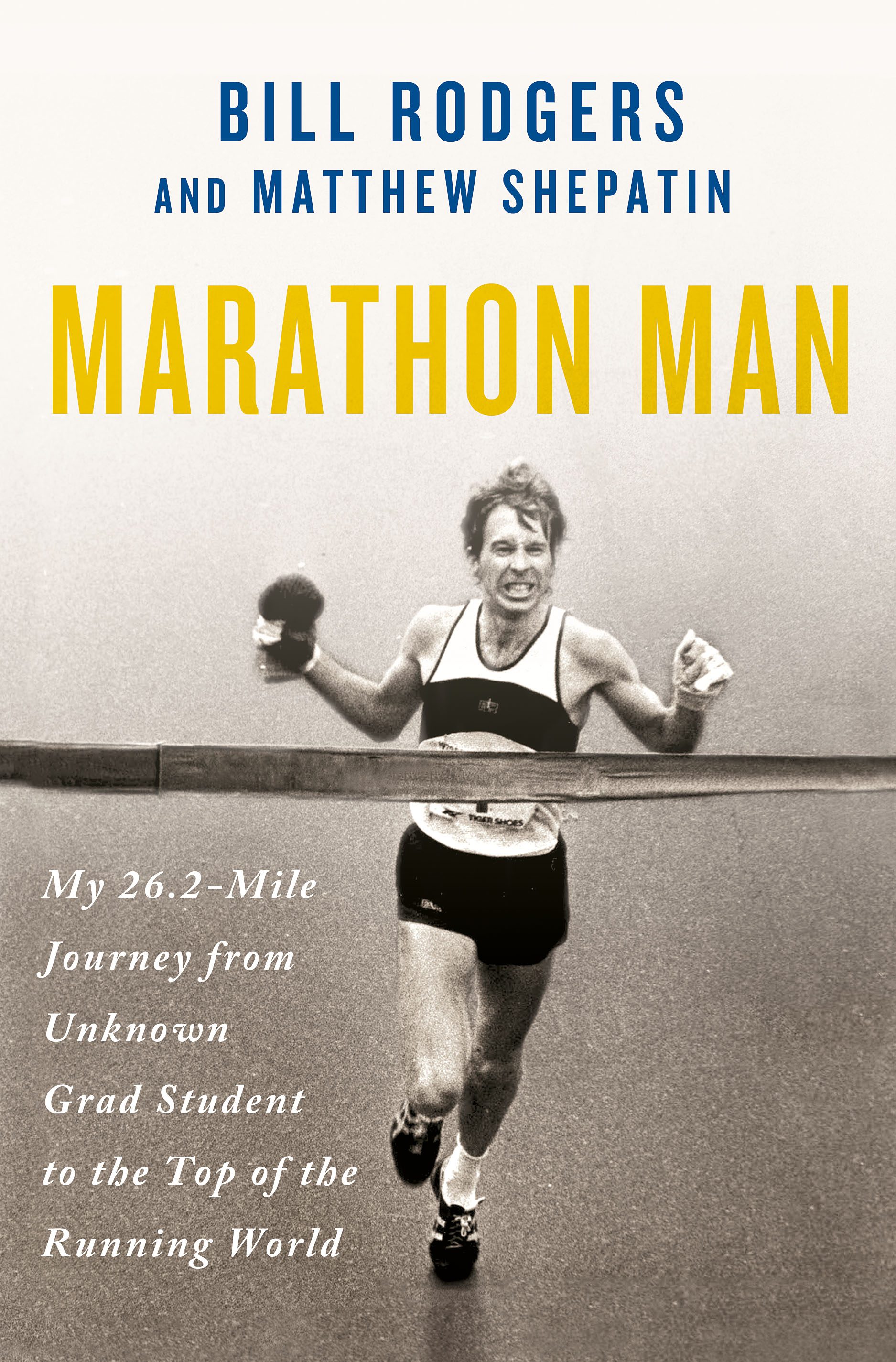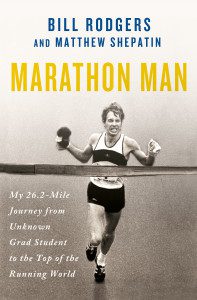A conversation with Marathon Man co-author

 We talked with Marathon Man co-author Matthew Shepatin on writing Bill Rodgers’ life story.
We talked with Marathon Man co-author Matthew Shepatin on writing Bill Rodgers’ life story.
How did you end up co-writing this book?
My agent told me to do some research on Bill. What I discovered blew me away. Then I learned how he had quit the sport for three years after college. At that point, he thought his running days were behind him. My initial reaction was: how had nobody made a movie about Boston Billy yet? I got in touch with Bill and we hit it off immediately.
How long did it take to put the book together?
It took about nine months. While I was enjoying my fairly bohemian existence in Park Slope, Brooklyn, Bill was residing in Boxborough, Mass. and traveling around to races being a spokesperson for the sport. So I conducted regular interviews over the phone with him. The more research I did, the more fascinated I became with Bill and the running boom of the late-1970s. There’s no doubt I drove Bill crazy, keeping him on the phone for hours at a time, but it was fun listening to him recount his wild climb to the top of the marathon world with such humble charm. Anybody who meets Bill is instantly disarmed by his infectious enthusiasm for life and running.
Related Article
Book review: Marathon Man by Bill Rodgers and Matthew Shepatin
What’s your favourite scene in the book?
When he stopped during the 1975 Boston Marathon at the base of Heartbreak Hill and calmly tied his shoe. At the time, he was an unknown grad student on pace to break the course record, as well as break Olympic champion Frank Shorter’s American record. It’s a wonderfully Zen moment that speaks volumes about what makes Bill one of the most fascinating and successful marathoners in history.
The reason Bill ran then is the reason Bill continues to run today — because he loves it, because he wants to see what he’s capable of, because of the good friends he made along the way.
Are you a runner?
No. I grew up skiing in the White Mountains of New Hampshire. But, for some reason, Bill assumed I was a runner and so when we started working on the book together he would say to me, “You know what it’s like.” Of, course I had no idea what it was like. So I figured I better start running so I could at least have the smallest inkling of what he was talking about.
Did you ever get to go for a run with Rodgers?
Not yet but I would love to. We finally met at the 80th birthday party of Bill Squires, the Greater Boston Track Club coach. His revolutionary training methods helped take Bill Rodgers to the next level, as well as Alberto Salazar, Dick Beardsley, Patti Catalano Dillon and Greg Meyer. It was bizarre to suddenly be meeting the colourful characters from the book in real life. I saw this bearded beanpole across the room and knew right away — yep, that’s Bill’s college roommate Amby Burfoot, who won the Boston Marathon when he was still a student. Cool stuff.
What’s one thing you learned about the Boston Marathon from Rodgers that every runner should know?
I was blown away by the meteoric rise of long-distance running from a very fringe sport practiced by a few hardcore enthusiasts like Bill, all of whom had day jobs to support their local road racing lifestyle, to this global phenomenon. There was something so pure about the sport back then— guys like Bill Rodgers, Amby Burfoot, and Tom Fleming put in more miles, ran up more hills, and did more speedwork than ever before to discover the true potential that lay hidden. Fame came to Bill, but it was never sought. Recognition was never a motivating factor. The reason Bill ran then is the reason Bill continues to run today — because he loves it, because he wants to see what he’s capable of, because of the good friends he made along the way.
Did you and Rodgers ever discuss why so many American runners were so good back then and why so few are today by comparison?
We did. I don’t want to speak for Bill, but I think he believes that there was a collective will that fuelled their individual success, especially among the members of the Greater Boston Track Club. It’s something important to consider moving forward.
In your opinion, what was Rodgers’ greatest victory?
Tough question. If I was going to play the role of the contrarian, I would say Fukuoka Marathon in 1977. At the time, it was arguably the most prestigious marathon in the world and the win meant that he held all three major championships at the same time – no runner in history has pulled off this feat. What’s more, Frank Shorter and Bill are the only Americans ever to fly over to Japan and claim victory. With that said, the 1975 Boston Marathon was such a jaw-dropping breakthrough win. His 1976 New York City Marathon victory, in which he finally knocked-out the long-standing heavyweight Frank Shorter, was a study in redemption.

